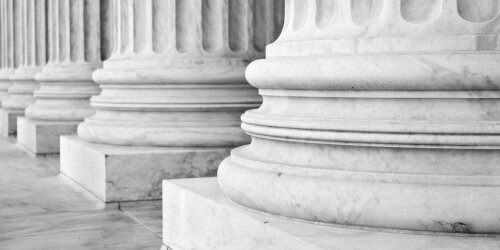Best FDA Law Lawyers in New York City
Share your needs with us, get contacted by law firms.
Free. Takes 2 min.
List of the best lawyers in New York City, United States
1. About FDA Law in New York City, United States
FDA law in New York City combines federal regulation with state and local enforcement. The core framework is the Federal Food, Drug, and Cosmetic Act (FD&C Act), administered by the U.S. Food and Drug Administration (FDA). This means most products sold in NYC-foods, drugs, cosmetics, medical devices, and biologics-must meet federal standards. FDA basics explain the reach of these rules across all states and cities, including New York City.
In addition to federal oversight, New York State and New York City regulate health and safety matters that intersect with FDA rules. The state enforces additional requirements through the Public Health Law and NYCRR regulations, while NYC DOHMH enforces local health code provisions related to food safety, cosmetics, and related products sold within the five boroughs. These layers create a regulatory environment where businesses in NYC must align with federal, state, and local requirements.
FDA seeks to protect public health by ensuring safety, efficacy and security across foods, drugs, cosmetics and devices.FDA.gov
For NYC residents and businesses, navigating FDA law often requires coordination among federal regulators and state and local authorities. An attorney experienced in regulatory matters can help interpret how FD&C Act provisions apply to specific NYC products, operations and enforcement scenarios. See official sources for detailed regulatory frameworks and updates.
2. Why You May Need a Lawyer
In New York City, regulatory actions can affect manufacturers, distributors, retailers and healthcare providers. Here are concrete, NYC-specific scenarios where you would benefit from legal counsel specialized in FDA law:
- A Manhattan food business receives a FDA Warning Letter about labeling claims and ingredient disclosures for a ready-to-eat product. You need an attorney to assess whether to respond, revise labeling, and negotiate timelines with FDA staff.
- A Brooklyn pharmaceutical start-up seeks FDA clearance for a new drug or a device used in NYC hospitals. Legal counsel can guide IND submissions, pre-market consultation, and post-approval labeling requirements to avoid delays.
- A Queens cosmetic importer faces FDA import alert and detention at the Port of New York-Newark. Counsel coordinates with federal inspectors, organizes recall or corrective action, and communicates with FDA about time-sensitive shipments.
- A NYC clinical research site plans an Investigational New Drug (IND) or Investigational Device Exemption (IDE) protocol. An attorney helps with study design compliance, adverse event reporting, and renewal processes.
- A small NYC manufacturer wants to verify that its product labeling and claims comply with FDA rules and state do-not-declare or misbranding issues to prevent a consumer complaint or enforcement action.
- A consumer in NYC experiences an adverse drug event and wishes to file a MedWatch report or pursue a potential private action. Legal counsel can advise on reporting, documentation and remedies.
These scenarios illustrate that NYC-specific enforcement can involve rapid communication, record requests, and potential recalls. An FDA-law solicitor can help tailor a response plan, preserve evidence, and coordinate with multiple regulators. FDA enforcement framework and local implementation may differ by product category and setting.
3. Local Laws Overview
Most FDA law in NYC operates in a federal framework, but state and local laws shape how compliance is achieved in practice. Here are 2-3 specific laws or regulatory regimes by name that govern FDA-related activities in New York City:
- Federal Food, Drug, and Cosmetic Act (FD&C Act) - the primary federal statute regulating foods, drugs, cosmetics and devices. NYC businesses must comply with active FD&C Act provisions in addition to state and local rules. See FDA overview of what the agency regulates. FDA overview
- New York State Public Health Law (PHL) - state-level authority that governs health and safety, including how certain products are manufactured, labeled and sold in New York. New York Public Health Law (PHL)
- New York Codes, Rules and Regulations (NYCRR) Title 10 - Department of Health regulations implementing NYPHL provisions relevant to health, food safety, cosmetics and medical products. NYCRR Title 10
The Port of New York-Newark is a critical gateway for FDA regulated imports into NYC. FDA operates inspections and enforcement activities at this port as part of federal import safety programs.
FDA conducts risk-based inspections to ensure imported products meet U.S. safety standards.FDA import programs
In addition, the New York City Health Code administered by the Department of Health and Mental Hygiene (DOHMH) governs local health and safety practices for foods and consumer products sold in NYC. The city-wide code interacts with state and federal rules in complex ways, so local guidance from counsel is often needed. For governance details, consult official federal and NY state sources cited above.
4. Frequently Asked Questions
What exactly does FDA regulate in NYC and how does it affect my business?
FDA regulates foods, drugs, cosmetics, medical devices, and certain biologics nationwide, including NYC. Businesses must meet federal standards and consider state and local requirements to avoid enforcement actions.
How do I know if my product requires FDA clearance or approval?
Most drugs, medical devices, and certain cosmetics require FDA clearance or pre-market approval. Foods and dietary supplements follow labeling and safety standards; importers must screen shipments for compliance.
When will FDA contact my NYC company after a problem is found?
FDA typically initiates contact after a problem is identified during inspections, testing, or investigations. The timing depends on risk, product type, and enforcement priorities.
Where can I find official FDA and NYS health information about compliance?
Key sources include FDA.gov for federal rules and NY health sites such as health.ny.gov for state guidance. Local NYC DOHMH pages provide city guidance when applicable.
Why should I hire a solicitor or attorney to handle FDA inquiries?
A qualified FDA-law solicitor can prepare formal responses, negotiate deadlines, interpret complex regulations, and coordinate with multiple regulators across jurisdictions.
Can I respond to an FDA warning letter without a lawyer?
You can respond, but a lawyer improves the quality and speed of remediation, reduces the risk of further action, and ensures compliance commitments are enforceable.
Should I pursue a voluntary recall and how to coordinate it?
Voluntary recalls are often faster when coordinated with FDA and state authorities. A solicitor can draft recall communications, notification plans, and post recall monitoring.
Do I need to register my facility with FDA and/or NYS authorities?
Facility registration is typically mandatory for manufacturers, distributors or importers of FDA-regulated products. A lawyer helps ensure proper scope and renewal timelines.
How long does an FDA inspection in NYC typically take and what happens?
Inspections can range from a few hours to multiple days, depending on product type and compliance history. Expect a written inspection report and potential corrective actions.
What is a warning letter and what are typical steps to address it?
A warning letter outlines observed violations with corrective actions required. The next step is a formal response and a plan to remedy cited issues.
Is there a difference between enforcement actions and regulatory compliance?
Enforcement actions penalize non-compliance, including fines or seizures. Regulatory compliance focuses on ongoing adherence to rules and proactive risk management.
How much do FDA law services typically cost in NYC?
Costs vary by matter complexity, provider experience, and time. Typical engagements may involve hourly rates or flat-fee arrangements for specific tasks.
5. Additional Resources
These organizations offer official information and services relevant to FDA law in New York City.
- U.S. Food and Drug Administration (FDA) - federal regulator overseeing foods, drugs, cosmetics, devices and biologics. FDA.gov
- New York State Department of Health (NYSDOH) - state level enforcement and guidance on health-related regulations affecting FDA-regulated products. Health.ny.gov
- Port of New York-Newark and FDA import programs - federal import safety operations affecting NYC shipments. FDA Import Programs
6. Next Steps
- Identify your exact FDA issue and gather all related documents, including letters, labeling, permits, and inspection reports. Timeframe: 1-7 days.
- Define your regulatory goals and desired outcomes (remediation, recall, or clearance timeline). Timeframe: 1-3 days.
- Obtain referrals to NYC-based FDA-law solicitors or regulatory specialists and check for relevant industry experience. Timeframe: 1-2 weeks.
- Schedule initial consultations to discuss facts, deadlines, and potential strategies. Timeframe: 1-3 weeks after referrals.
- Choose a solicitor with demonstrated experience in FDA matters and NYC enforcement nuances. Sign a retainer and outline a plan. Timeframe: 1-2 weeks after consultations.
- Develop a formal compliance plan with milestones, responsibilities, and FDA liaison points. Timeframe: 2-6 weeks for drafting and approval.
- Implement the plan, monitor regulator communications, and adjust as needed. Ongoing with quarterly reviews.
Lawzana helps you find the best lawyers and law firms in New York City through a curated and pre-screened list of qualified legal professionals. Our platform offers rankings and detailed profiles of attorneys and law firms, allowing you to compare based on practice areas, including FDA Law, experience, and client feedback.
Each profile includes a description of the firm's areas of practice, client reviews, team members and partners, year of establishment, spoken languages, office locations, contact information, social media presence, and any published articles or resources. Most firms on our platform speak English and are experienced in both local and international legal matters.
Get a quote from top-rated law firms in New York City, United States — quickly, securely, and without unnecessary hassle.
Disclaimer:
The information provided on this page is for general informational purposes only and does not constitute legal advice. While we strive to ensure the accuracy and relevance of the content, legal information may change over time, and interpretations of the law can vary. You should always consult with a qualified legal professional for advice specific to your situation.
We disclaim all liability for actions taken or not taken based on the content of this page. If you believe any information is incorrect or outdated, please contact us, and we will review and update it where appropriate.

















